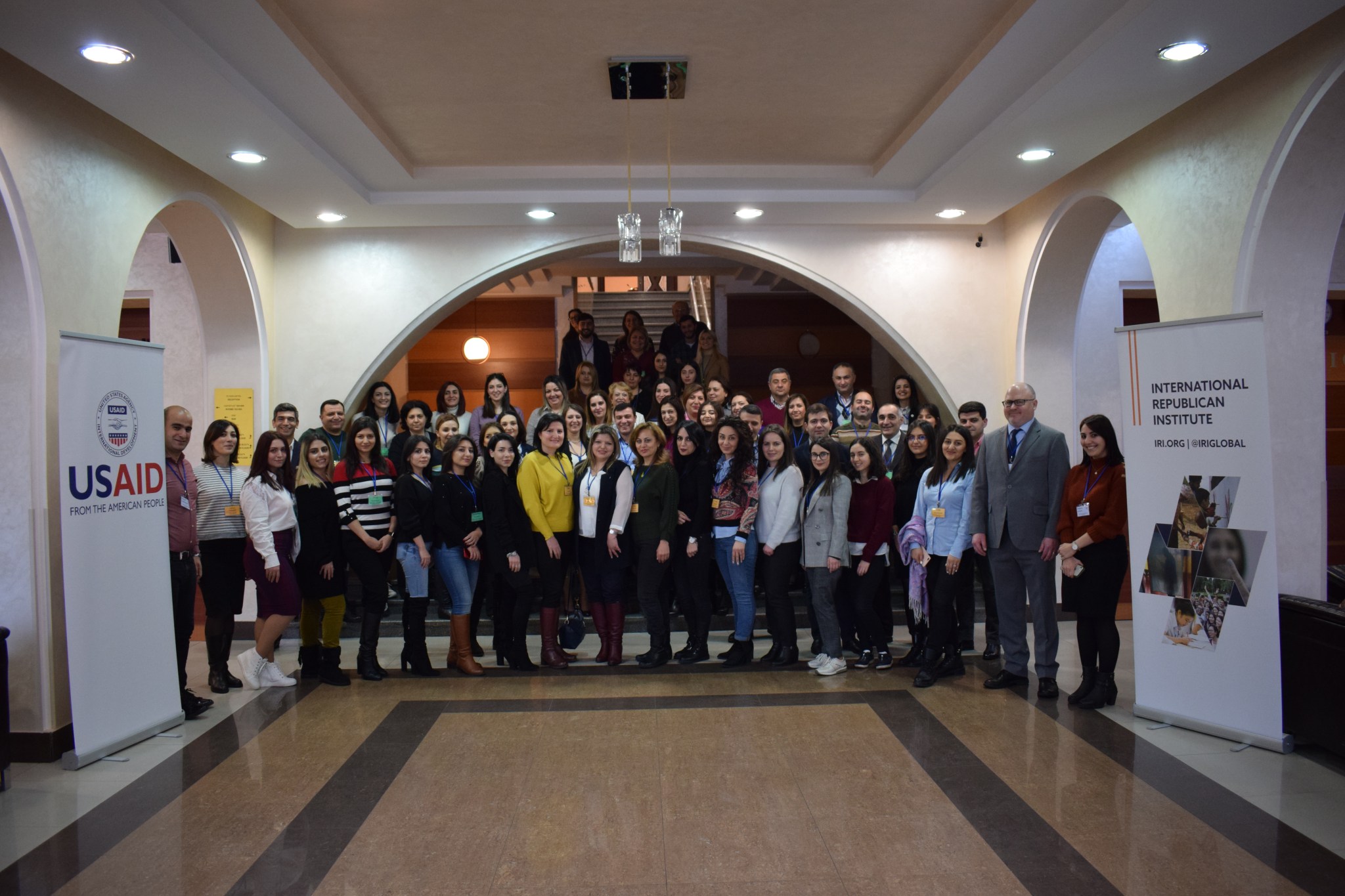IRI Helps Bolster the Effectiveness of the Armenian Government

As a result of the ongoing COVID-19 pandemic and the outbreak of a 40-day long war in Nagorno-Karabakh, Armenia is now facing a political, financial and socio-economic crisis. This, as some have argued, may cause the country to falter on its democratic progress, exacerbate long-standing weaknesses in the government’s administrative system and threaten its transparency. To prevent this outcome, the International Republican Institute (IRI) is supporting Armenia’s government to effectively deliver a series of socio-economic programs by opening communication channels between officials and citizens.
In response to the crisis, Prime Minister Nikol Pashinyan has released a roadmap to ensure Armenia emerges from both the pandemic and the conflict with Azerbaijan as a strong, economically thriving democracy. To achieve this vision, the program calls for improved service delivery, effective COVID-19 management, stronger social and economic programs, regular and thematic consultations with civil society organizations (CSOs) and the enforcement of anti-corruption measures in the country.
But in order to fulfill these objectives, it is critical that the Armenian government sticks to its plan and remains transparent, participatory and collaborative throughout the implementation of the program. Effective management of the announced socio-economic projects and targeted communication with the beneficiaries will also play a decisive role in ensuring the success of the roadmap.
To ensure the effectiveness of the government’s initiative, the International Republican Institute (IRI) is equipping officials and staff with the tools to better communicate the results of the roadmap to the public and collect citizen feedback. Such support will enable the government to respond to Armenians’ needs in times of crisis and better engage them in the decision-making process.
Through a series of staff schools, IRI has helped to hone government officials’ skills in areas such as project management, monitoring and evaluation, data analysis and visualization.. These schools have also provided training on how to counter disinformation, identify false information, and ensure accurate messaging about the reforms and initiatives undertaken by government institutions.
The IRI trainings have contributed to a culture of professionalism and transparency among the public officials in Armenia, improving the quality of government communication and policymaking in the areas of human rights, anticorruption, education, etc. On many occasions, the participants themselves have praised IRI for the usefulness of the trainings in their regular work and professional growth. As one participant said, “Certain phenomena were discussed during the training that comprise part of the regular work. Thanks to the accurate instructions, it’s more feasible to avoid work-related mistakes and gaps”.
The trainings have also helped government staff to promote processes and mechanisms that protect the public interest and ensure the full engagement of citizens in government decision-making. Given these results, the IRI trainings will continue to support the government in shaping a stronger team of public officials who are competent enough to implement the PM’s roadmap and put the country back on a sustainable development path.
As Armenia continues its fight against COVID-19 and the threat of democratic backsliding, IRI will continue building the operational capacity of the government with the same spirit and vigor to promote the establishment of transparent and accountable governance.
Given the fact that support for good governance and public administration will remain a high priority for the international donor community, IRI’s work in the sector can also open a new platform for discussions about potential means of supporting the Armenian government’s operational capacity as a guarantee for the continuity of democratic reforms.
Top